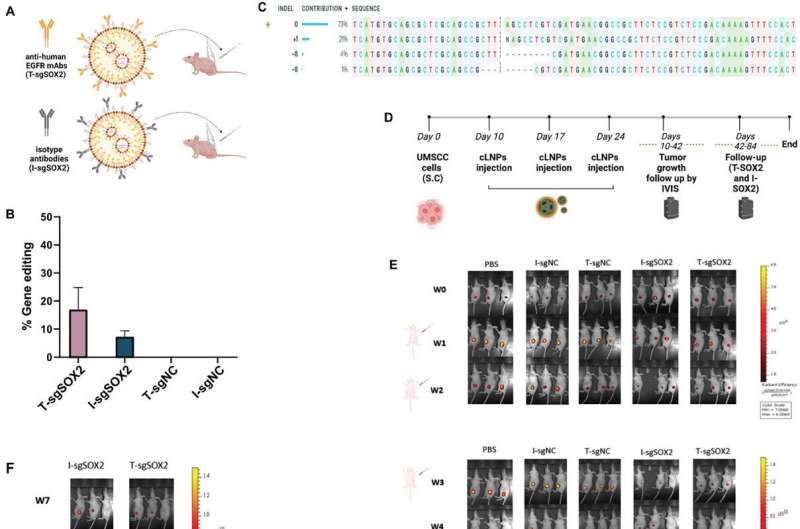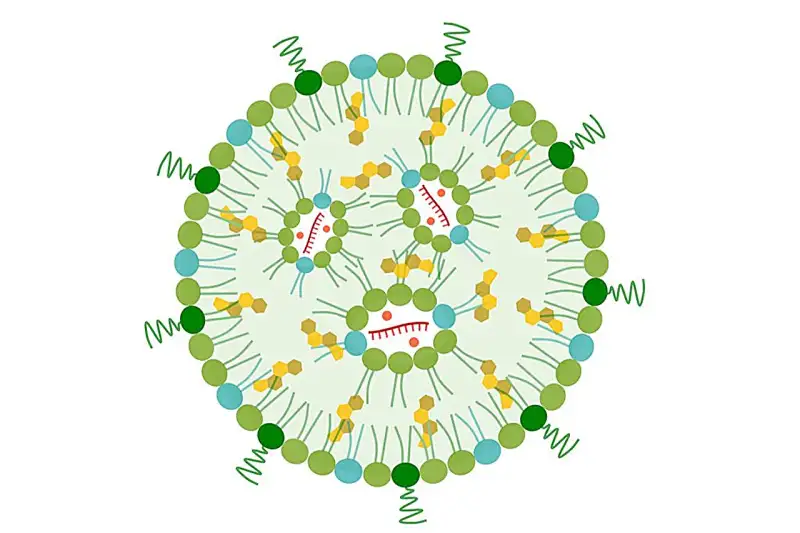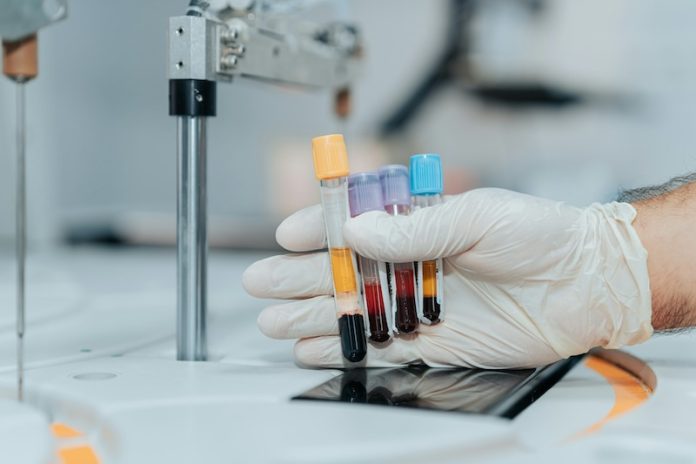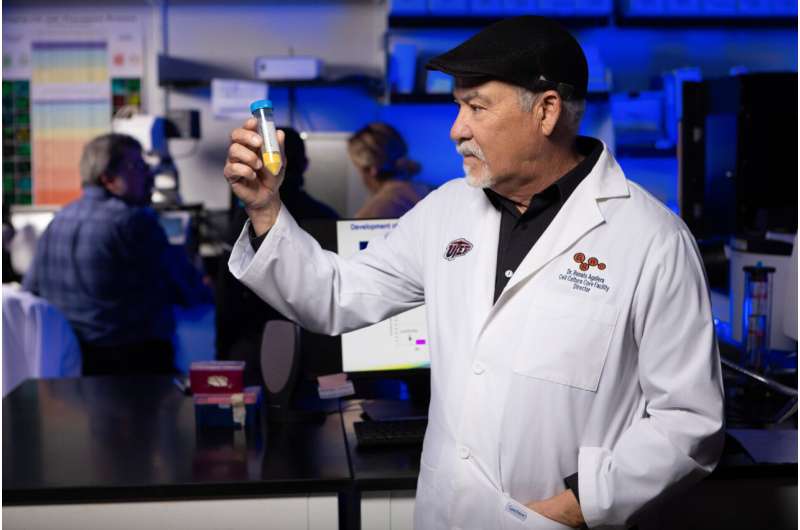Personalized & Precision Medicine
-
Facebook
-
Twitter
-
Linkedin
Personalized and precision medicine tailors cancer treatment based on an individual’s genetic profile, tumor characteristics, and lifestyle factors. This approach enhances treatment effectiveness, minimizes side effects, and improves patient outcomes through targeted therapies and advanced diagnostics.

CRISPR cuts gene from head and neck cancers through direct injection – 50% of tumors eliminated in animal models
Researchers from Tel Aviv University utilized CRISPR to cut a single gene from cancer cells of head and neck tumors—and successfully eliminated 50% of the tumors in model animals.

First-Ever Lung Cancer Vaccine Undergoing Clinical Trial Stage in Multiple Countries
Lung cancer remains one of the most lethal forms of cancer globally, accounting for an estimated 1.8 million deaths in 2020 alone. However, a groundbreaking development in cancer treatment has recently emerged with the initiation of clinical trials for a novel mRNA-based vaccine designed to combat non-small cell lung cancer (NSCLC), the most common form of lung cancer. BioNTech, the German biotechnology company famous for developing effective COVID-19 vaccines using mRNA technology, has created this innovative form of immunotherapy, known as BNT116.

New RNA vaccine shows promise for pancreatic cancer treatment
A new study from Memorial Sloan Kettering Cancer Center has shown that an RNA-based neoantigen vaccine can generate long-lasting immune cells that may help slow the recurrence of pancreatic ductal adenocarcinoma (PDAC)—one of the deadliest cancers.

TAU researchers use CRISPR to shrink cancer cells – study
Researchers at Tel Aviv University (TAU) successfully utilized CRISPR, a gene-editing technology, to remove a single gene from cancer cells in head and neck tumors. The study, conducted in animal models, resulted in the elimination of 50% of the tumors. The findings were published in the journal Advanced Science.

Cancer drug realized after researcher’s chance exposure to malaria drug
When experienced researcher Renato Aguilera happened across the chemical structure of a tried-and-true antimalarial drug one day, he thought it might effectively fight cancer. He was right, and he has the research, the patent, and the pharma company to prove it.

Scientists find the key to treating colon cancer
Scientists at Northwestern Medicine have discovered that blocking a protein called GATA6 in mice with colon cancer slowed down tumor growth and helped the mice live longer.

New discovery could protect cancer patients from radiation side effects
Radiation therapy is a key part of cancer treatment, with about 60% of cancer patients in the U.S. receiving it at some stage.

Silexion Therapeutics’ Preclinical Cancer Candidate Shows Tumor Reduction For Pancreatic Cancer
Silexion Therapeutics Corp. SLXN+1.65%+ Free Alertsreleased data on Wednesday from orthotopic pancreatic cancer models demonstrating that subcutaneously administered SIL204 effectively reduces primary tumor growth and metastatic spread.

Nanoparticle immune therapy shows potential to halt pancreatic cancer spread
Pancreatic cancer remains one of the most challenging tumors to treat, partly because it is often discovered at advanced stages when the disease has already spread, or metastasized. About half of pancreatic cancer patients experience metastasis to the liver, which worsens the prognosis for an already life-threatening disease.

Eating This Way May Help Your Immune System Fight Cancer, New Research Shows
Cancer is a genetic disease, but increasingly, researchers are beginning to view it as a metabolic disease as well. That’s because tumor growth isn’t simply the result of DNA mutations gone wild. It also involves changes in the structure and function of the mitochondria, the “powerhouse” part of our cells which are crucial for turning food into energy.

New blood test could detect gallbladder cancer more accurately
Scientists at Karolinska Institutet and Karolinska University Hospital have discovered specific proteins in the blood that can help doctors distinguish between gallbladder cancer and gallbladder inflammation.

How genetic testing is leading to better treatments for childhood cancer
New research is bringing hope to children and young people with cancer by using genetic testing to match them with more effective and less harmful treatments.

Certain genetic alterations may contribute to primary resistance of certain cancers to KRAS G12C inhibitors
The KRAS G12C mutation is found in approximately 3% of all colorectal cancer cases and 1% to 2% of pancreatic adenocarcinoma cases, according to Hao Xie, MD, PhD, a medical oncologist at Mayo Clinic Comprehensive Cancer Center.

Common malaria drug repurposed to fight cancer
Can a drug that’s used to treat malaria be repurposed to fight cancer? Researchers at The University of Texas at El Paso have secured a patent for the anti-malarial drug pyronaridine to do just that. Pyronaridine has been used to treat the mosquito-borne infectious disease for over 30 years.

Genetic testing offers hope for targeted childhood cancer therapies
New research has looked into a comprehensive and structured approach to genetic testing, matching children and young people with cancer to targeted treatments.

Breast cancer drug Supinoxin shows potential for small-cell lung cancer in new tests
Purdue University scientists have identified the Supinoxin small-molecule drug as a possible new therapy for small-cell lung cancer (SCLC).

Cell-free RNA blood test identifies early-stage cancers, monitors treatment resistance and detects tissue damage
Stanford Medicine researchers have developed a blood test capable of detecting cancers, the ways cancer resists treatments and tissue injury caused by non-cancerous conditions.

DNA origami offers more accurate imaging in the fight against pancreatic cancer
One of the challenges of fighting pancreatic cancer is finding ways to penetrate the organ’s dense tissue to define the margins between malignant and normal tissue

How vitamin B3 could help fight cancer
Scientists from the University of Minnesota have found a new way to boost the body’s natural defenses against cancer.

Root cause of pancreatic cancer and new treatment
Pancreatic cancer is one of the deadliest forms of cancer. A specific type called pancreatic ductal adenocarcinoma, or PDAC, is especially aggressive. Right now, there are no truly effective treatments for this kind of cancer. Sadly, only about 8 out of every 100 people diagnosed with PDAC live longer than five years.

Huge breakthrough as breast cancer pill approved for NHS
A “huge breakthrough” in breast cancer treatment has arrived with the NHS approval of a twice-daily pill for the most common form of advanced disease.

New method identifies protein that may govern cancer cell movement and metastasis
Using a novel method that gives a readout of which proteins are in specific locations within cells, UT Southwestern Medical Center researchers have identified a protein that plays a key role in cell adhesion and movement.

Breast cancer pill ‘step in the right direction’
Two women who had breast cancer say a new pill which helps reduce its spread is a “step in the right direction”.

Revolutionary DNA Method Could Save Thousands from Ineffective Cancer Treatments
Cambridge researchers developed a new DNA classification system that reveals hidden patterns in cancer, potentially transforming how doctors identify patients who will respond to immunotherapy treatments.






